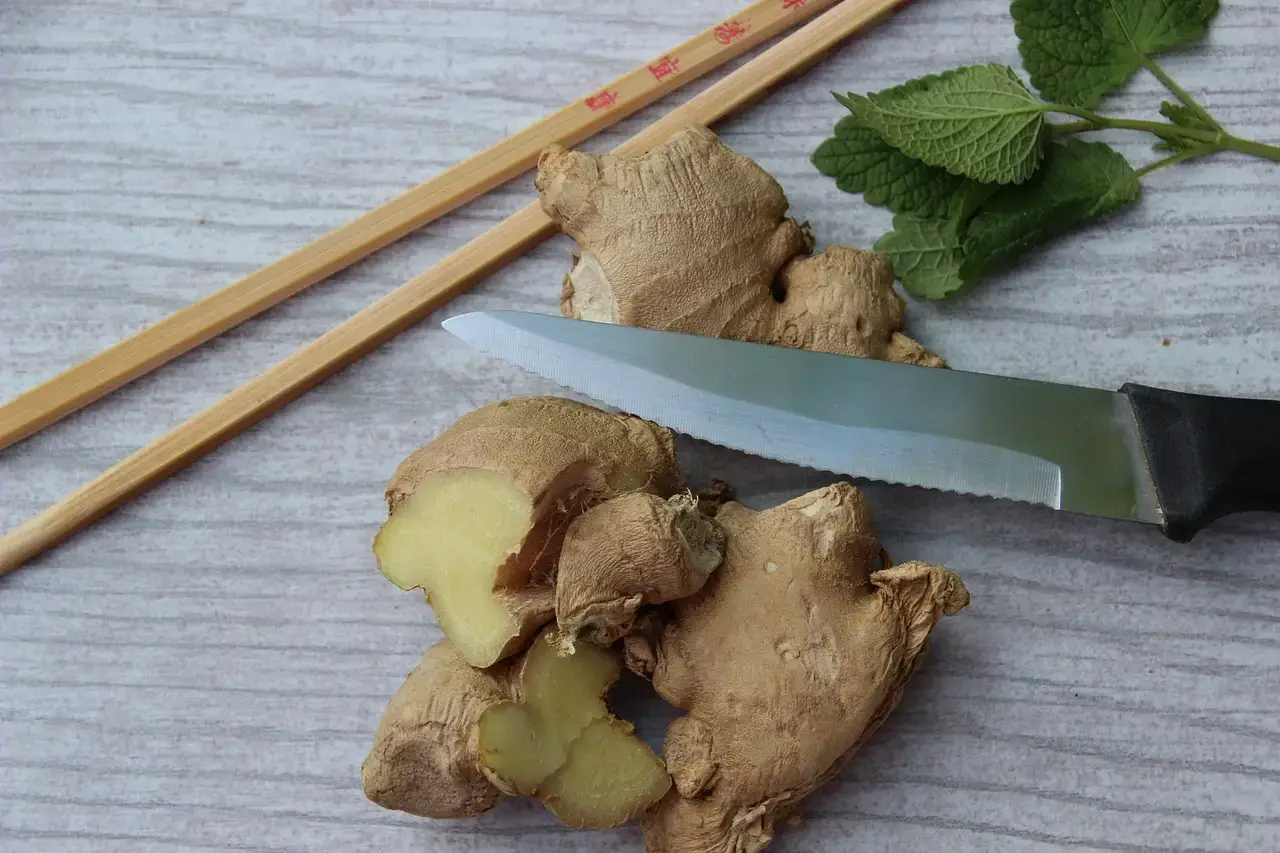Supporting your digestive health is very important for overall well-being, and herbs have been used for centuries to naturally help the digestive system. Adding digestive herbs to your everyday life is an easy and enjoyable way to take care of yourself. In this article, we’ll explore some of the best herbs for digestion and how to use them in teas, tinctures, and recipes.
Peppermint (Mentha Piperita)
Peppermint is a well-loved herb when it comes to helping digestion, and people have been using it for centuries. It contains menthol, a natural compound that relaxes the muscles in your stomach and intestines, making it a great choice for easing bloating, gas, and cramps. Its cooling and soothing effect can also be a relief if you have an upset stomach or conditions like irritable bowel syndrome (IBS).
The best part about peppermint is how easy it is to add to your daily routine. You can drink it as tea, add it to water for a refreshing twist, or even use it in cooking. Plus, it doesn’t just help your digestion—peppermint can also give you a little energy boost, making you feel refreshed after a meal.
How Peppermint Helps Digestion:
- Eases bloating, gas, and stomach discomfort.
- Helps relax the muscles in your gut, which is great if you’re feeling crampy.
- Soothes digestive issues, especially for people with IBS.
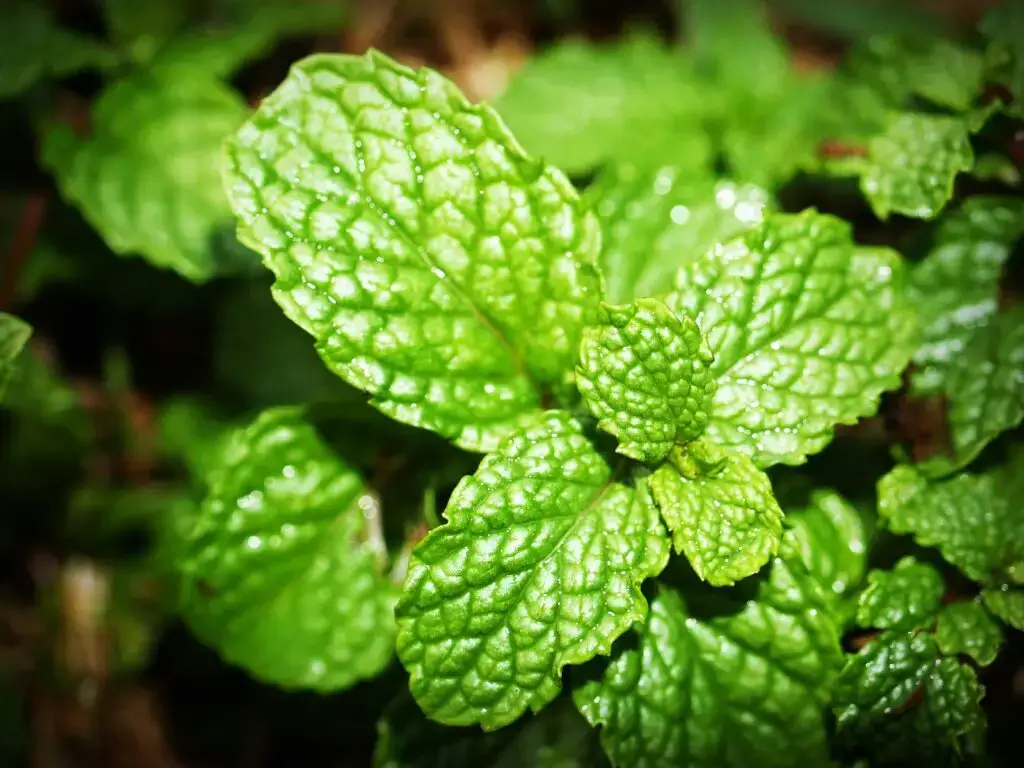
How You Can Use Peppermint for Digestive Health:
- Peppermint Tea:
Add 1 tablespoon of dried peppermint leaves to a cup of boiling water. Let it steep for about 10 minutes, then strain and enjoy. - Peppermint Water:
Stay hydrated and help your digestion at the same time by adding a few fresh peppermint leaves to a jug of water. Let it sit for an hour and enjoy sipping throughout the day. - Peppermint-Yoghurt Dressing:
For a creative meal idea, mix some finely chopped fresh peppermint leaves with plain yoghurt, a squeeze of lemon juice, and a pinch of salt. This makes a fresh, tangy dressing that pairs well with salads, roasted veggies, or grilled meats while supporting digestion.
Chamomile (Matricaria Chamomilla)

Chamomile is well-known for its calming effects, and this gentle herb also works wonders for your digestive health. It helps reduce inflammation in the gut and can ease indigestion, gas, and stomach cramps. If you’ve experienced discomfort after a meal, chamomile is a great natural option to soothe your digestive tract.
With its mild, sweet flavour, chamomile is a pleasant addition to your day, especially in the evening. Whether you prefer it as a tea or tincture, chamomile is a simple, calming way to support digestion.
How Chamomile Helps Digestion:
- Reduces inflammation in the digestive tract.
- Helps ease indigestion, gas, and stomach cramps.
- Promotes relaxation, which can support better digestion.
How You Can Use Chamomile for Digestive Health:
- Chamomile Tea:
Steep 1 tablespoon of dried chamomile flowers in hot water for about 10 minutes, then strain and enjoy. Drinking this tea before bed helps calm your mind and digestion, making it a perfect way to end the day. - Chamomile Tincture:
For a quick option, add a few drops of chamomile tincture after meals to soothe your stomach, especially if you’re experiencing bloating or discomfort.
Fennel (Foeniculum Vulgare)
Fennel seeds are a go-to remedy for digestive issues, especially for reducing gas and bloating. In some cultures, it’s common to chew fennel seeds after a meal to help digestion and freshen your breath. The seeds work by stimulating the secretion of digestive juices, helping your body break down food more easily. Fennel can also relieve cramping, making it a great herb if you’re dealing with stomach discomfort.
Fennel’s slightly sweet, earthy flavour makes it easy to add to dishes or enjoy as tea. Whether using the seeds or the fresh bulb, fennel is a fantastic herb for digestion.
How Fennel Helps Digestion:
- Reduces gas and bloating.
- Helps with digestion by promoting digestive juices.
- Relieves cramping and stomach discomfort after meals.
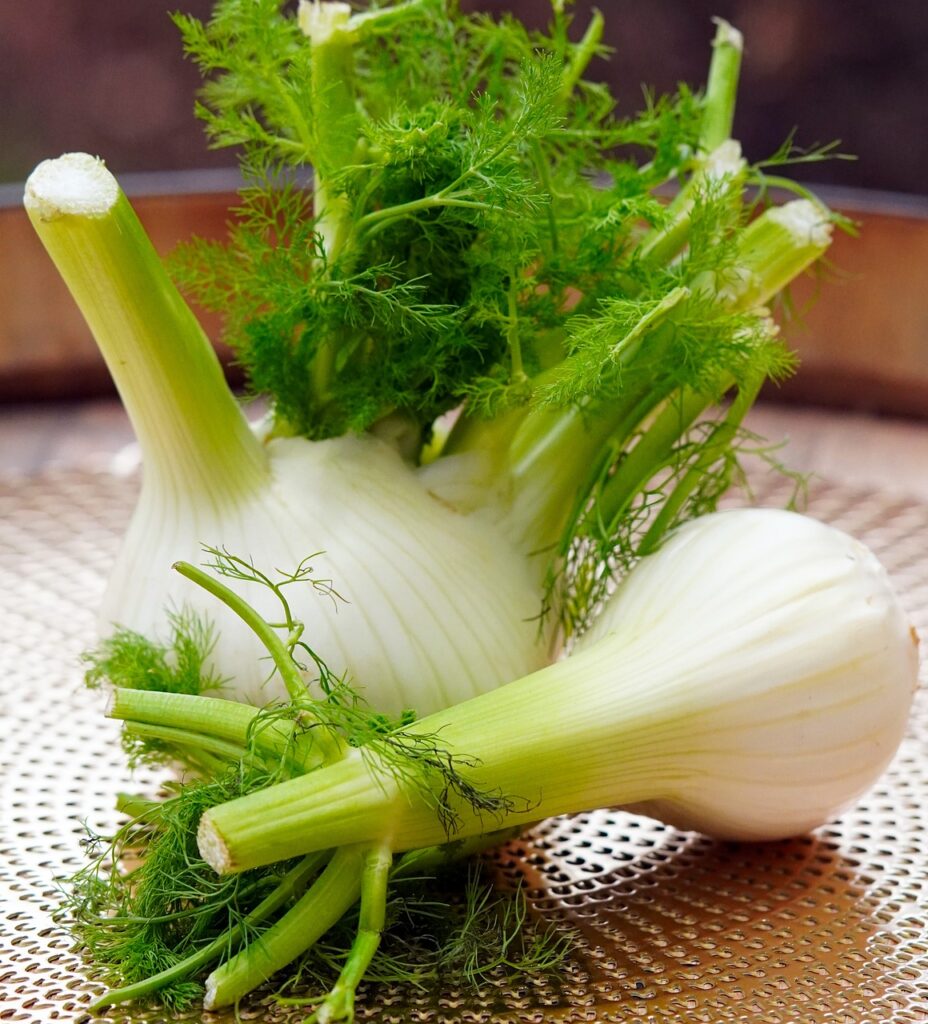
How You Can Use Fennel for Digestive Health:
- Fennel Tea:
Crush 1 teaspoon of fennel seeds and steep them in boiling water for 5 to 10 minutes. Strain and drink after meals to help prevent bloating. It’s soothing and perfect for settling your stomach. - Roasted Fennel with Vegetables:
Roast fresh fennel bulb with other vegetables by cutting the bulb into wedges, drizzling with olive oil, and roasting until tender. This delicious side dish helps aid digestion thanks to fennel’s natural properties.
Dandelion (Taraxacum Officinale)

Dandelion might be a pesky weed in the garden, but it is from the powerful herbs for digestive health. Its bitter taste stimulates bile production, helping to break down fats and support digestion. Dandelion also acts as a gentle laxative, helping keep things moving smoothly in your digestive system. It has purifying properties, too, as it cleanses the blood.
This herb can be used in both its root and leafy forms. Whether enjoyed as tea or added to a salad, dandelion brings many digestive benefits.
How Dandelion Helps Digestion:
- Purifies the blood and helps flush out toxins.
- Stimulates bile production, aiding in the digestion of fats.
- Acts as a gentle laxative, promoting regular bowel movements.
How You Can Use Dandelion for Digestive Health:
- Dandelion Tea:
Steep 1 teaspoon of dried dandelion root in hot water for about 15 minutes. This tea is great before meals to boost digestion, especially for breaking down fats. - Dandelion Salad:
Add dandelion greens to your salad for a fresh, bitter flavour that stimulates digestion. Toss with veggies, olive oil, and lemon juice for a salad that supports your digestive health.
Calamus, Sweet Flag (Acorus Calamus)
Calamus root might not be as well-known as some herbs, but it’s incredibly helpful for digestive health. It’s often used to strengthen a weak digestive system, helping with issues like gas, colic, and even glandular problems. Calamus works by stimulating a sluggish stomach and intestines, which helps clear out excess mucus and gets your digestion moving again.
Calamus can also be useful for people with slow metabolism, underactive intestines, and conditions like anaemia and dropsy. If your digestion feels slow or your metabolism could use a boost, calamus is definitely worth adding to your routine.
How Calamus Helps Digestion:
- Strengthens a weak digestive system, helping with gas and colic.
- Stimulates a sluggish stomach and intestines, clearing out excess mucus.
- Supports overall metabolism and helps with conditions like anaemia and dropsy

How You Can Use Calamus for Digestive Health:
- Calamus Tea:
Steep the dried root in hot water for about 10 to 15 minutes. This tea is great when you feel bloated, or your digestion seems slow. The root’s stimulating effects can help kickstart your digestion and clear out any mucus slowing things down. - Calamus Tincture:
For a more concentrated option, add a few drops of calamus tincture to water. It’s especially helpful for flatulence or a sluggish metabolism.
Agrimony (Agrimonia Eupatoria)

Agrimony is another of the fantastic herbs for digestive health, known for helping with everything from indigestion to supporting liver health. It contains bitter compounds that help kickstart your digestive juices, making it easier for your body to break down food and absorb nutrients. If you’ve ever felt sluggish after a meal or had mild diarrhoea, agrimony could provide relief.
One of its key benefits is its astringent effect, which tightens and tones the tissues in your digestive tract. This is great if you’re dealing with digestive upset. Agrimony is also good at soothing inflammation, so if your gut feels irritated, this herb can help calm things down.
On top of all this, agrimony helps promote bile production, which is important for digesting fats and keeping your liver and gallbladder in good shape.
How Agrimony Helps Digestion:
- Supports the liver and gallbladder by encouraging bile production, which helps digest fats.
- Boosts bile and digestive enzyme production, helping your body break down food and absorb nutrients.
- Tones your digestive tissues, which can help with mild diarrhoea and general gut health.
- Has anti-inflammatory properties that calm irritation in the digestive system.
How You Can Use Agrimony for Digestive Health:
- Agrimony Tea:
Steep 1 teaspoon of dried agrimony leaves in hot water for about 10 minutes. Drink up to two cups a day to help with digestion and support your liver. Just be careful not to overuse this tea, as too much can cause constipation or lower blood sugar levels, so diabetics should use caution.
Speedwell (Veronica Officinalis)
Speedwell is a gentle herb with several digestive benefits. Though not as popular as others, it has soothing and anti-inflammatory properties that ease digestive discomfort. If you’ve ever had bloating, indigestion, or mild diarrhoea, speedwell can provide relief.
This herb is particularly good at calming inflammation in the digestive tract and promoting overall digestive health. Its astringent properties tone the digestive tissues, making it useful for stabilising digestion and improving bowel movements.
How Speedwell Helps Digestion:
- Reduces gas and discomfort, especially after meals.
- Calms inflammation in the digestive tract, helping with gastritis or general digestive discomfort.
- Its astringent effects tone digestive tissues, which can help with diarrhoea and other irregularities.
- Promotes better digestion and improves nutrient absorption.

How You Can Use Speedwell for Digestive Health:
- Speedwell Tea:
Steep 1-2 teaspoons of dried speedwell leaves in hot water for 10 minutes. Strain and drink after meals to help reduce bloating and support healthy digestion.
Yellow Dead Nettle (Lamium Galeobdolon)

Yellow Dead Nettle is another one from the herbs for digestive health, with anti-inflammatory and astringent properties. If you experience indigestion, mild diarrhoea, or bloating after meals, this herb can help restore balance.
Yellow Dead Nettle’s astringent effects help tone digestive tissues, firm up stools, and relieve mild diarrhoea. Its mild diuretic and laxative effects also support regular bowel movements.
How Yellow Dead Nettle Helps Digestion:
- Reduces inflammation in the stomach and intestines, which helps with indigestion or gastritis.
- Its astringent effects tone the tissues in your digestive tract, helping manage diarrhoea.
- Supports regular bowel movements with its mild diuretic and laxative effects.
- Soothes bloating and indigestion after meals.
How You Can Use Yellow Dead Nettle for Digestive Health:
- Yellow Dead Nettle Tea:
Steep 1-2 teaspoons of dried leaves in hot water for 10 minutes. Drink this tea after meals to reduce bloating and support smooth digestion.
Wild Chicory, Succory (Cichorium Intybus)
Wild Chicory, also known as Succory, is one of the fantastic herbs for digestive health. It’s especially good for sluggish digestion and liver support. With its high inulin content and ability to stimulate bile production, chicory helps break down fats and promotes overall gut health.
Chicory is also a prebiotic, which means it feeds the good bacteria in your gut and promotes a balanced microbiome. It acts as a natural laxative, making it useful for constipation and irregular digestion.
How Wild Chicory Helps Digestion:
- Calms the digestive system and eases symptoms like bloating or indigestion.
- Contains inulin, a prebiotic fibre that feeds healthy gut bacteria and supports a balanced digestive system.
- Boosts bile production, which helps break down fats and improve digestion after heavy meals.
- Acts as a mild laxative, promoting regular bowel movements and preventing constipation.

How You Can Use Wild Chicory for Digestive Health:
- Chicory Root Tea:
Simmer 1-2 teaspoons of dried chicory root in water for 10-15 minutes. Strain and drink after meals to help with digestion, bile production, and regular bowel movements. - Chicory Coffee Substitute:
Roast and brew chicory root as a coffee substitute. Enjoy it just like your morning coffee, but without the caffeine, to support digestion and liver health.
Linseeds (Flaxseeds)
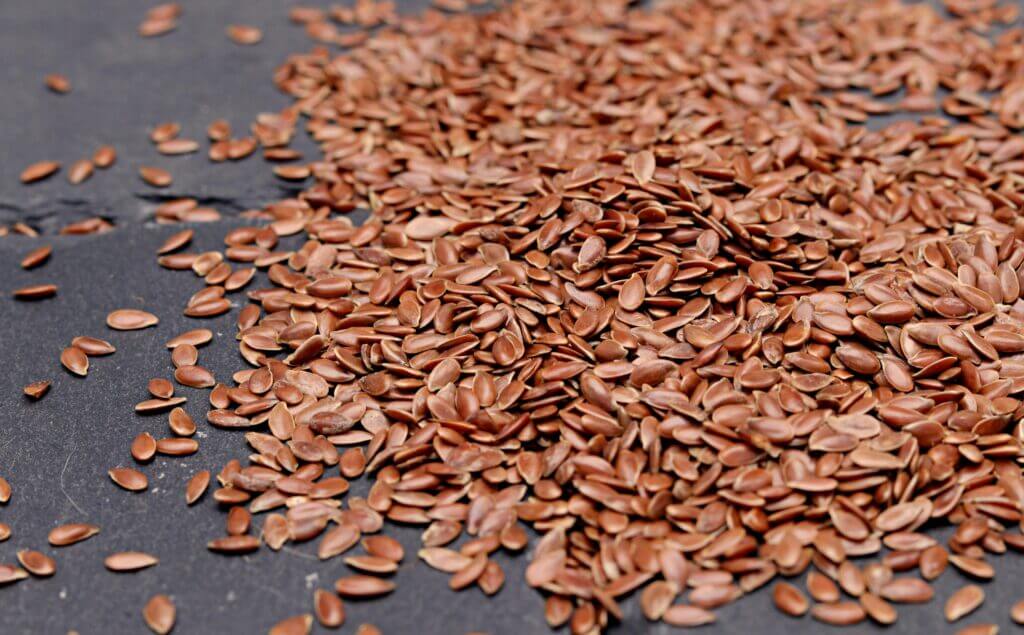
Linseeds, or flaxseeds, are tiny but packed with fibre and nutrients that support digestion. Whether you’re dealing with constipation or just want to improve your gut health, linseeds are a great addition to your diet.
Their high fibre content helps regulate bowel movements and ease digestive discomfort. They also act as a natural laxative, gently relieving constipation. Plus, their omega-3 fatty acids soothe the digestive tract and promote gut health.
How Linseeds Help Digestion:
- Help ease bloating, gas, and irregularity, especially for people with IBS.
- When soaked in water, linseeds form a gel-like substance that acts as a gentle laxative.
- Full of fibre that softens stools and makes bowel movements easier.
- Their omega-3 fatty acids reduce inflammation in the gut and support healthy bacteria.
How You Can Use Linseeds for Digestive Health:
- Linseed Infusion:
Soak 1-2 tablespoons of linseeds in water overnight. Drink the gel-like mixture in the morning to promote regularity and relieve constipation. - Add to Meals:
Sprinkle linseeds on cereal, yoghurt, salads, or blend them into smoothies. Ground linseeds are easier to digest, so consider grinding them first for maximum benefits.
Ginger (Zingiber Officinale)
- Ginger is another fantastic herb for digestion. It’s been used for ages to soothe nausea, speed up digestion, and ease indigestion. What makes ginger so effective is its warming properties. When you consume ginger, it not only calms an upset stomach but also boosts circulation in your digestive system. If you’ve ever felt queasy after eating or needed to settle your stomach, ginger is one of the best natural remedies out there. You can enjoy it in a hot cup of tea, add it to your meals, or even take it as a tincture. It’s an easy way to give your digestive system a boost while adding a spicy kick to your food.
How Ginger Helps Digestion:
- Warms the body and boosts circulation, which supports digestion.
- Reduces nausea and settles an upset stomach.
- Stimulates digestion and helps prevent indigestion.

How You Can Use Ginger for Digestive Health:
- Ginger Tea:
Slice about 1 inch of fresh ginger root and simmer it in water for 10 minutes. If you like, add a touch of honey for sweetness. Drinking this tea before meals can help get your digestive system ready and prevent discomfort after eating. - Ginger Tincture:
Feeling bloated or nauseous? A few drops of ginger tincture in a glass of water can work wonders, and it’s quick and easy when you’re on the go. - Ginger Stir-Fry:
Grate fresh ginger and add it to a stir-fry for a delicious, spicy flavour that also helps your digestion.
Turmeric (Curcuma Longa)
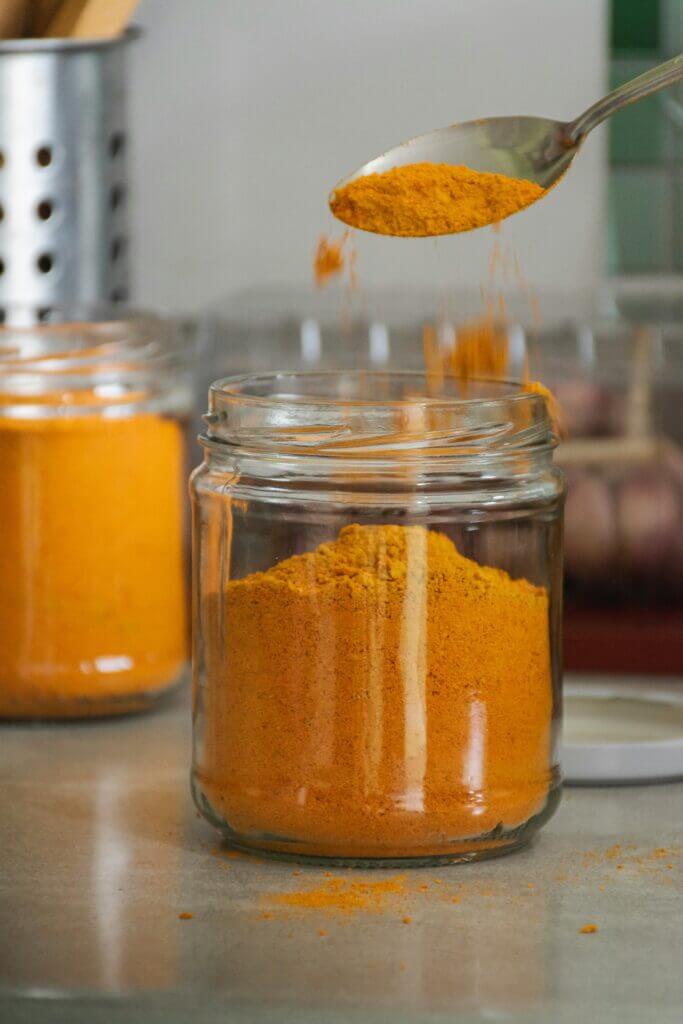
Turmeric is a well-loved spice, known for its powerful anti-inflammatory and digestive benefits. Its key ingredient, curcumin, gives it its healing powers, making turmeric a great herb for supporting your digestive system. If you’ve ever dealt with discomfort, bloating, or inflammation, turmeric could help.
Turmeric is especially good at stimulating bile production, which helps break down fats and promote smooth digestion. Whether you use it in cooking, as a tea, or in supplements, turmeric can calm your digestive system and support overall gut health.
How Turmeric Helps Digestion:
- Protects the stomach lining, which can help prevent or manage ulcers.
- Reduces inflammation in the gut, which can help with conditions like irritable bowel syndrome (IBS) or inflammatory bowel disease (IBD).
- Relieves gas and bloating, making digestion smoother and more comfortable.
- Stimulates bile production to help digest fats and break down food more effectively.
- Supports gut health by promoting the growth of healthy bacteria.
How You Can Use Turmeric for Digestive Health:
- Golden Milk:
Heat 1 cup of milk (dairy or plant-based) and stir in 1 teaspoon of turmeric powder, 1/2 teaspoon of cinnamon, and 1/4 teaspoon of ginger powder. Simmer for 5-10 minutes, sweeten to taste, and enjoy as a calming drink before bed or after meals. - Turmeric Tea:
Simmer 1 teaspoon of ground turmeric in water for 10 minutes. Add honey, lemon, and a pinch of black pepper to enhance curcumin absorption. This tea is perfect after meals to reduce bloating. - In Cooking:
Use turmeric in curries, soups, or stews, or sprinkle some in smoothies. Adding turmeric to your meals supports digestion while giving your food an earthy flavour.
Final Thoughts
Taking care of your digestive health is essential for your overall well-being, and herbs offer a natural and effective way to support your body. From easing bloating and indigestion to improving nutrient absorption and promoting regularity, these herbs can make a real difference in how you feel every day. Whether you’re sipping on a calming tea, adding herbs to your meals, or using tinctures for a quick boost, there are so many simple ways to incorporate these remedies into your daily routine.
By making herbs like peppermint, ginger, turmeric, and others part of your diet, you’re not just soothing digestive issues—you’re supporting your body’s natural processes and creating a foundation for long-term health. Small, consistent changes can have a big impact over time, so why not start with a cup of herbal tea today? Your digestive system—and your whole body—will thank you for it. And remember, before using any herbal remedies, especially if you have an existing medical condition, are pregnant, or breastfeeding, it’s important to consult with a healthcare provider. A specialist can help ensure that these natural solutions are safe for you and fit into your personal health needs.
If you enjoyed this article, feel free to share it with your friends and family to spread the knowledge!
Don’t forget to follow us on social media for more tips, updates, and insights into natural remedies and holistic wellness.
Join our community and stay connected to discover the magic of nature for a healthier, happier life!

